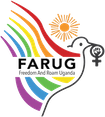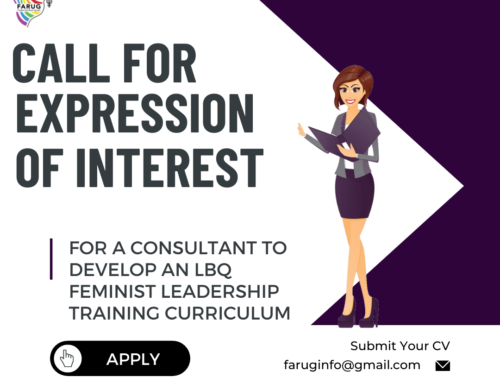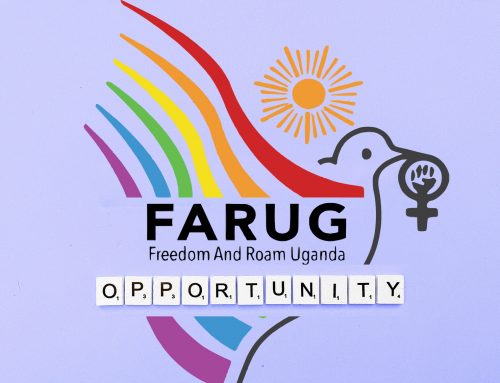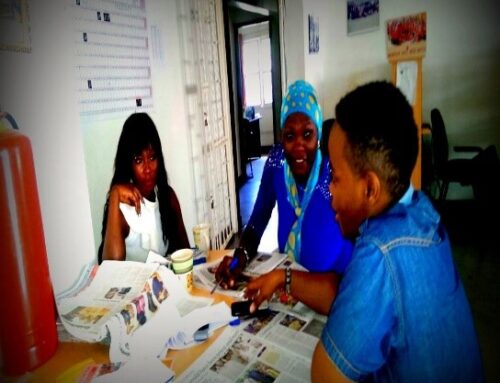






My name is Mubiru Arthur,the health coordinator, freedom and roam Uganda as well as a volunteer Trans desk coordinator. I am open minded, understanding and liberal transgender man very passionate about human rights and proving health services to all LBT/WSW persons in Uganda. As a transgender man working with an LBTI organization and passionate about LBT rights regardless of sexual and gender identity,I volunteer with the trans desk to help inspire other trans persons who are battling with gender understanding, identifying and acceptance.
In 2015 around August, the AIDS and Rights Alliance for Southern Africa (ARASA) called out applications for the 2016 trainers of trainees training programme. This training was aimed at equipping beneficiaries with knowledge and skills in Human rights, HIV/AIDS and TB. (Effective training on promoting human rights based response to HIV and tuberculosis in southern and east Africa). I humbly grabbed this opportunity applied for the training and was selected to be one of the trainees for 2016 programme.
Brief background about ARASA
Aids and Rights Alliance for Southern Africa (ARASA) is a regional partnership of over 90 non-governmental organizations working together to promote a human rights based response to HIV and TB in southern and east Africa, through capacity building and advocacy. ARASA conducts an annual training of trainers programme aimed at strengthening and supporting civil society capacity for effective HIV, TB sexual and reproductive health and human rights advocacy in southern and eastern Africa. The Training of trainers (ToT) programme accommodates representatives of the civil society organizations working on HIV, TB SRHR and human rights from 18 countries across the region. This programme comprises four modules that include human rights, HIV/TB prevention and treatment literacy, monitoring and evaluation, communication, project management, financial management, advocacy strategies and other skills gaps identified at the annual partnership forum.
The objectives of this programme are;
- Promoting HIV responses that are supported by and tailored to the needs of most at risk populations or people living with HIV, including women and girls, transgender people ,men who, young people, and people who use drugs;
- Getting equipped with a comprehensive understanding of the relationship between health and human rights and the importance of a rights-based response to HIV and TB;
- A better understanding of the international and regional treaties, declarations and guidelines that should be used to shape national responses to HIV and TB;
- Guidance on how to use law and policy to promote a human rights-based response to HIV and TB;
- Learning skills of good practice in advocacy for a rights-based response to HIV and TB;
- Getting equipped with tools for effective advocacy around HIV, TB and human rights and 6 Tools for conducting effective training on HIV, TB and human rights.
This programme comprised the following combination of training workshops that were conducted in Johannesburg, South Africa on the following provisional dates:
- A five-day basic training of trainer’s workshop (22-26 February 2016)
- A five-day specialized training of trainer’s workshop on M&E for HIV, TB and Human Rights Advocacy (23-27 May 2016)
- A five-day specialized training of trainer’s workshop on Treatment Literacy (22-26 August 2016)
- A five-day advanced training of trainers workshops (7-11 November 2016).
My experience at ARASA TOT 2016
This was my first time to travel to South Africa and most importantly for study purposes. At the training I was equipped with knowledge in effective human rights based response and tools for effective advocacy around HIV, TB and Sexual reproductive health.
At the individual level, interacting with participants from different countries in Africa, I learnt how to respect and understand peoples diversities, team work, communication and Listening skills, and most of it all the facilitation skills. I learnt that African countries face the same issues when it comes to key populations and health. However the political settings, laws and rules differ in some countries.
South African weather is different from Uganda weather, but I managed to complete the training without falling sick during any of the modules.
Achievements after the training
I was awarded a certificate of completion of the four modules on promoting human rights based response to HIV and tuberculosis in southern and East Africa and this has strengthened and increased my passion to fight and lobbying for policy change and accessible health care services among key populations in Uganda.
From the facilitation training skills I acquired, I have dialogued with several health service providers about Human rights and sexual reproductive health related issues of LBTI persons in Uganda. I have also structured several facilitation sessions with LBTI/WSW persons to educate them about HIV/AIDS,TB, human rights and their SRH Rights.
This programme has not only equipped me with knowledge and skills but has also contributed to my leader ship roles and responsibilities regarding best practices like exemplary operating, time management, confidence and self esteem.




Leave A Comment